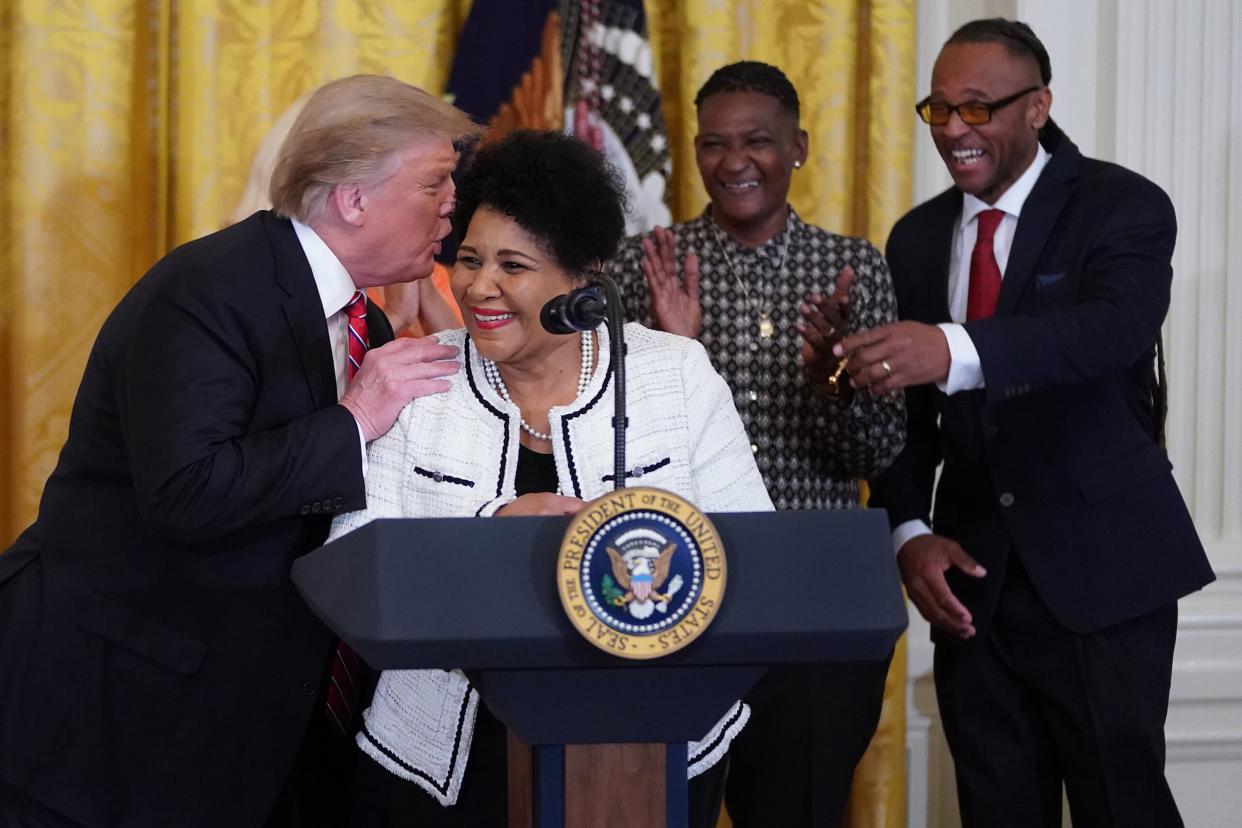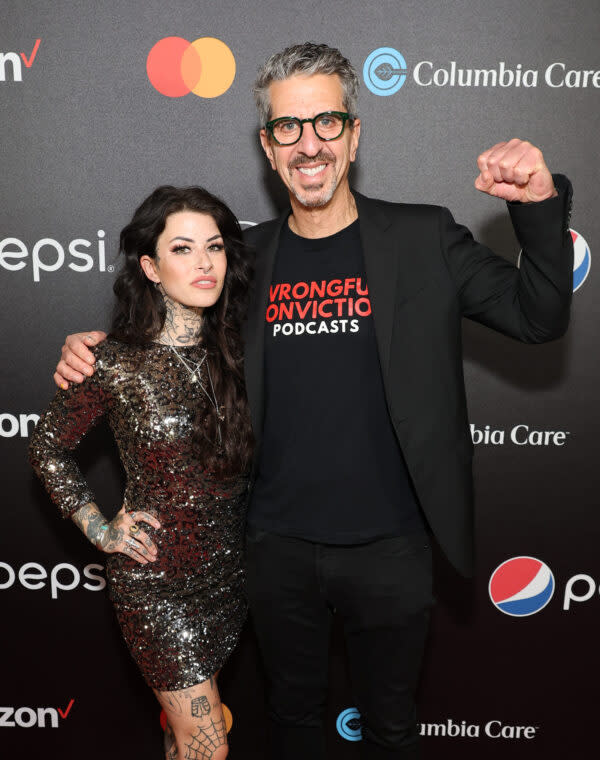Pardoned Cocaine ‘Entrepreneur’, Alice Marie Johnson, Talks Forgiveness and Criminal Justice Reforms at SPIN Panel

Memphis’s former “quintessential entrepreneur” of cocaine, as Alice Marie Johnson was described by the judge who in 1997 sent her down for life on narco-conspiracy and money laundering convictions, was a star speaker at SPIN IMPACT’s South By Southwest criminal-justice panel.
Billing herself as a “first-time non-violent offender”, Johnson served 21 years before President Donald Trump commuted her sentence in 2018 (and bestowed a full pardon in 2020) after Kim Kardashian visited him at the White House on her behalf. Trump’s liberation of Johnson followed unsuccessful appeals for clemency made during the presidency of Barack Obama.
More from Spin:
The Toll of Living Life by the Drop: Margo Price Tells Her Truth
Danielle Ponder Fights for Change on the Stage and in the Courtroom
In a press conference with Johnson, President Trump said that “today a lot of people wouldn’t even be going to jail” for her crimes.
Johnson shared the stage at the South by Southwest panel with Maggie Freleng, Pulitzer Prize-winning host of the Wrongful Conviction podcast, Jason Flom, a music executive whose Lava For Good company houses Wrongful Conviction, and public defender turned musician Danielle Ponder, who spoke movingly about her brother being mandatorily sentenced to 20 to life for a robbery, and of the effect of that crushing sentence on herself and her family.

Johnson, co-author of her memoir, After Life: My Journey From Incarceration To Freedom, told the audience that she “never sold drugs”, and that her “entire role” during her early ’90s years in large-scale cocaine distribution consisted of simply passing along telephone numbers.
“My role was they called me and say, ‘This is a number that you need to give someone else.’ I never met them,” said Johnson, who now campaigns for an end to mandatory sentencing, improved educational and post-release services for felons, and other reforms.
Former U.S. Attorney for West Tennessee Mike Dunavant has taken a different view about Johnson’s complicity, describing Johnson as the “lead defendant” in the prosecution of “a large scale drug trafficking pipeline between Houston and Memphis.”
In opposing Johnson’s bid to have her post-commutation probation quashed, Dunavant wrote that Johnson’s organization was “responsible for the distribution of approximately 2,000 to 3,000 kilograms [4,400 to 6,600 pounds] of cocaine […] which had a value of between $50,000,000 and $75,000,000.”
Dunavant cited the sentencing judge’s identification of Johnson as the leader of the organization, which put large quantities of cocaine into the Memphis area at a time when the city’s homicide rate was setting record highs.
Twenty-five people were convicted for their involvement, mostly after pleading guilty. Johnson was one of the handful who instead went to trial, with Durant writing: “It is the Government’s position that the defendant testified untruthfully at her trial and has continued to refuse to accept responsibility for her criminal conduct.”
Johnson addressed some of this at the South By Southwest panel, saying that she was not fully informed of the sentencing consequences of her plea decisions, and that she was the victim of incriminating lies made by some of her co-accused.
An audience member put a question to Johnson, saying, “You are so composed and seem joyful, and I would be so angry to have lost 21 years of my life. I just wanna know how you are sitting there today doing activism, working to help other people, and without an apparent burden of anger.”
Johnson said in reply that the answer was forgiveness. “The thing that I had to do was I had to release myself and forgive those who put me there, those who lied on me.”
Releasing herself from anger ultimately took another step, Johnson said: “Most importantly, I had to forgive myself.”
Prolonged incarceration cost her immeasurably, she said. “I never got to see my parents alive again. I never got to see my sister again.”

Yet there was a hard-earned flipside: “I was not going to let them win,” Johnson said. “I have the gift of life. I’m breathing. I could dance, too. And so every time that something was supposed to break me, instead of breaking me, it built me and it gave me spine.”
Johnson now uses that spine to advocate for prisoners and those who struggling after release – people held back by years of inadequate rehabilitative and educational opportunities on the inside, and by restrictive post-release conditions on the outside.
“When people are set free – when they finish their time – they’re still actually incarcerated because they wear that label of felon,” said Johnson, mentioning how hard that can make getting hired, and how felons are commonly stripped of voting rights.
“Restorative justice also means giving them that true second chance,” said Johnson, founder and CEO of criminal justice advocacy organization, Taking Action for Good.
The full, lively, emotional SPIN IMPACT panel discussion can be listened to here.
To see our running list of the top 100 greatest rock stars of all time, click here.
The post Danielle Ponder Fights for Change on the Stage and in the Courtroom appeared first on SPIN.
